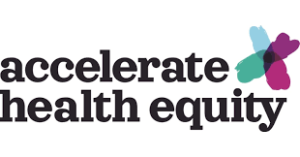PA Health Policy Update for January 26
The following is an update of selected state health policy developments in Pennsylvania from January 22 – 26. (Some of the language used below is taken directly from state documents).
Department of Human Services
- The Department of Human Services (DHS) has announced the launch of PA Navigate, an online tool designed to connect Pennsylvanians with community-based organizations, county and state agencies, and health care providers, for referrals to community resources that help them meet basic needs like food, shelter, transportation, etc.
- DHS has provided final notice of the assessment amount, the assessment methodology, and the estimated aggregate impact on nursing facilities that will be subject to the assessment under the Nursing Facility Assessment program from FY 2023-2024. Find additional information in this Pennsylvania Bulletin notice.
- DHS has announced the grantees who will administer the new Women’s Service Program, a grant intended to provide access to women’s health care, especially for pregnant and parenting women.
- DHS has issued a Medical Assistance Bulletin to distribute the Medical Assistance (MA) program vaccine desk reference, which is applicable to all providers enrolled in the MA program that may administer vaccines to MA beneficiaries in the fee-for-service or managed care delivery systems.
- DHS has published its report on Medicaid managed care enrollment in Pennsylvania for the month of November.
Department of Health
- The Department of Health (DOH), Office of Health Equity has announced its 2024 Health Equity Summitt will take occur April 4 – 5 in Harrisburg. The goal of the annual event is to bring key stakeholders from diverse backgrounds together to discuss health equity and address differences in health outcomes across communities. Find additional information on the summit’s website here.
- DOH has announced it will hold a series of public meetings for providers and families to share input on the potential priorities that will guide the commonwealth’s Title V Maternal and Child health Services Block Grant. Find additional information in this Pennsylvania Bulletin notice.
- DOH has issued a corrected Pennsylvania Bulletin notice with emergency medical services (EMS) vehicle, equipment, and supply requirements.
Department of Drug & Alcohol Programs 
The Department of Drug & Alcohol Programs (DDAP) has announced that $18 million is available through the substance use disorder (SUD) student loan repayment program to assist practitioners within the SUD treatment, prevention, case management and recovery support services workforce. The SUD loan repayment program is designed to help DDAP-licensed drug and alcohol treatment facilities as well as staff providing Single County Authority (SCA)-funded prevention, case management, and recovery support services in the Commonwealth. Applications must be submitted by March 1.
DDAP has also announced the availability of nearly $300,000 in grant funding for physical upgrades in recovery houses that provide safe housing for individuals in recovery from SUD. Grants of up to $50,000 each will be awarded to approximately five eligible applicants for health and safety upgrades including demolition, debris removal, rehabilitation improvements, environmental remediation costs, and construction and inspections to comply with DDAP’s regulations. The application period will remain open until the availability of funding is exhausted.
Board of Pharmacy
The State Board of Pharmacy has published current income levels necessary to participate in the Cancer Drug Repository program. Find additional information in this Pennsylvania Bulletin notice.
Medicaid Continuous Coverage Unwinding
- DHS is maintaining an online dashboard with Medicaid continuous coverage unwinding data. The data on this dashboard tracks the renewal process by county and zip code. Additional updates and resources about the Medicaid eligibility renewal process may be found here.
- DHS has published the following resources to help providers educate patients about Medicaid renewals and what to do if they are no longer eligible for Medicaid.
Stakeholder Events
Board of Nursing – January 29
The Board of Nursing will hold a public meeting on Monday, January 29 beginning at 9:00 a.m. The meeting will be held in person and virtually. Find additional details on how to participate here.
DOH – HIV Community Prevention Planning Committee – January 31
The Human Immunodeficiency Virus (HIV) Community Prevention Planning Committee will hold public meetings on Wednesday, January 31 from 9:00 a.m. to 5:00 p.m. and on Thursday, February 1 from 9:00 a.m. to 4:30 p.m. The meetings will be held in person and virtually. Find additional information in this Pennsylvania Bulletin notice.
DOH – Organ Donation Advisory Committee – February 1
The Organ Donation Advisory Committee will hold a public meeting on Thursday, February 1 from 10:00 a.m. to 1:30 p.m. The meetings will be held in person and virtually. Find additional information in this Pennsylvania Bulletin notice.
DOH – Brain Injury Advisory Board – February 2
The Brain Injury Advisory, formerly the Traumatic Brain Injury Advisory Board, will hold a public meeting on Friday, February 2 from 10:00 a.m. to 3:00 p.m. The meeting will be held in person at the Pennsylvania Training and Technical Assistance Network (6340 Flank Drive, Harrisburg, PA 17112) in the Cambria conference room. Find additional information in this Pennsylvania Bulletin notice.
 Shapiro-Davis Transition
Shapiro-Davis Transition Centers for Medicare & Medicaid Services
Centers for Medicare & Medicaid Services Department of Drug and Alcohol Programs
Department of Drug and Alcohol Programs SNAP’s response focuses on three areas:
SNAP’s response focuses on three areas: The new effort, dubbed “Accelerate Health Equity,” will seek to bring “…together organizations across the region to produce tangible improvement in health inequities, and ultimately achieve measurable, positive changes in health outcomes in Philadelphia.” Among the participants in the endeavor are AmeriHealth Caritas, Children’s Hospital of Philadelphia, the City of Philadelphia, Drexel University, Independence Blue Cross, Jefferson Health, Main Line Health, Penn Medicine, Philadelphia College of Osteopathic Medicine, Temple Health, and Trinity Health Mid-Atlantic.
The new effort, dubbed “Accelerate Health Equity,” will seek to bring “…together organizations across the region to produce tangible improvement in health inequities, and ultimately achieve measurable, positive changes in health outcomes in Philadelphia.” Among the participants in the endeavor are AmeriHealth Caritas, Children’s Hospital of Philadelphia, the City of Philadelphia, Drexel University, Independence Blue Cross, Jefferson Health, Main Line Health, Penn Medicine, Philadelphia College of Osteopathic Medicine, Temple Health, and Trinity Health Mid-Atlantic.